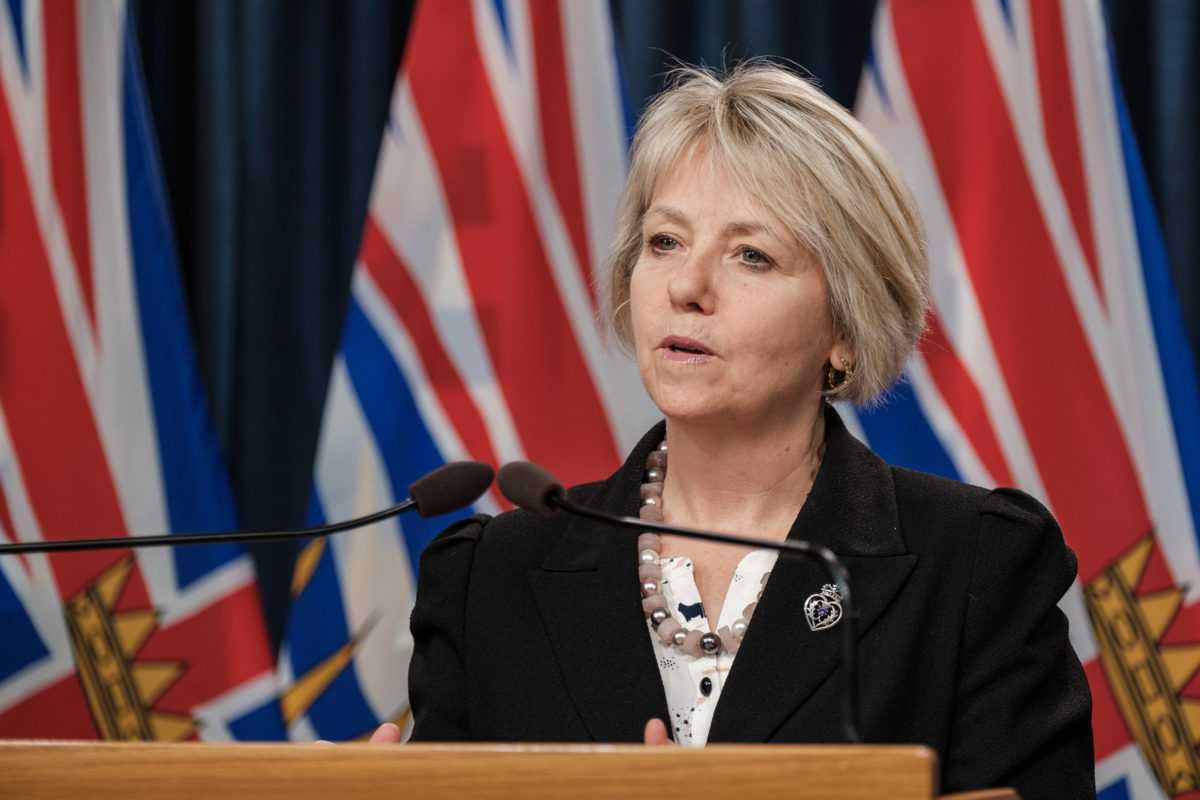British Columbia is beginning to manage COVID-19 more like the common cold, the province’s top doctor said Friday while explaining major shifts in the government’s approach to the pandemic.
While contact-tracing was a foundational part of the provincial COVID-19 response for the better part of two years, officials largely abandoned that tool weeks ago, deeming it ineffective in the face of Omicron’s rapid spread and shorter incubation period. They began discouraging PCR testing for most of the population around the same time, reserving limited capacity for health-care workers, seniors and others at higher risk.
Earlier this week, the government also updated self-isolation guidelines, removing the minimum length of time many adults need to stay home after catching the virus.
“I absolutely recognize this as a shift. It means we have to change our way of thinking that we have been working on so intently together for the last two years, but we are all familiar with these new measures. They’re much like how we manage other respiratory illnesses – influenza, or RSV, or enteroviruses that cause the common cold.”
-Dr. Bonnie Henry
For the time being, the province’s recommendations largely revolve around self-management, meaning that individuals should be assessing themselves for symptoms on a daily basis. Anyone who has even mild symptoms, such as a sore throat, should stay home until they feel better.
But for those who didn’t experience severe symptoms and were never tested, there is no longer a minimum amount of time that they must keep away from the public. Previously, they were told to self-isolate for at least five days.
“We cannot eliminate all risk, and I think that’s something that we need to understand and accept. As this virus has changed, it’s become part of what we will be living with for years to come.”
-Dr. Bonnie Henry

The same layers of protection that have been recommended since early in the pandemic remain important for reducing the spread, Henry said. That includes regular hand-washing, wearing quality masks indoors, and keeping groups small.
People who are at higher risk of severe outcomes from COVID-19, such as the immunocompromised, are also advised to be extra cautious.
Unlike colds and flus, COVID-19 is also still considered dangerous enough to warrant a number of impactful public health measures. Bars and nightclubs remain closed province-wide, while arenas, movie theatres and other venues are still limited to 50 per cent capacity. Organized events such as wedding and funeral receptions are still on pause, and providing proof of vaccination is required for many activities.


